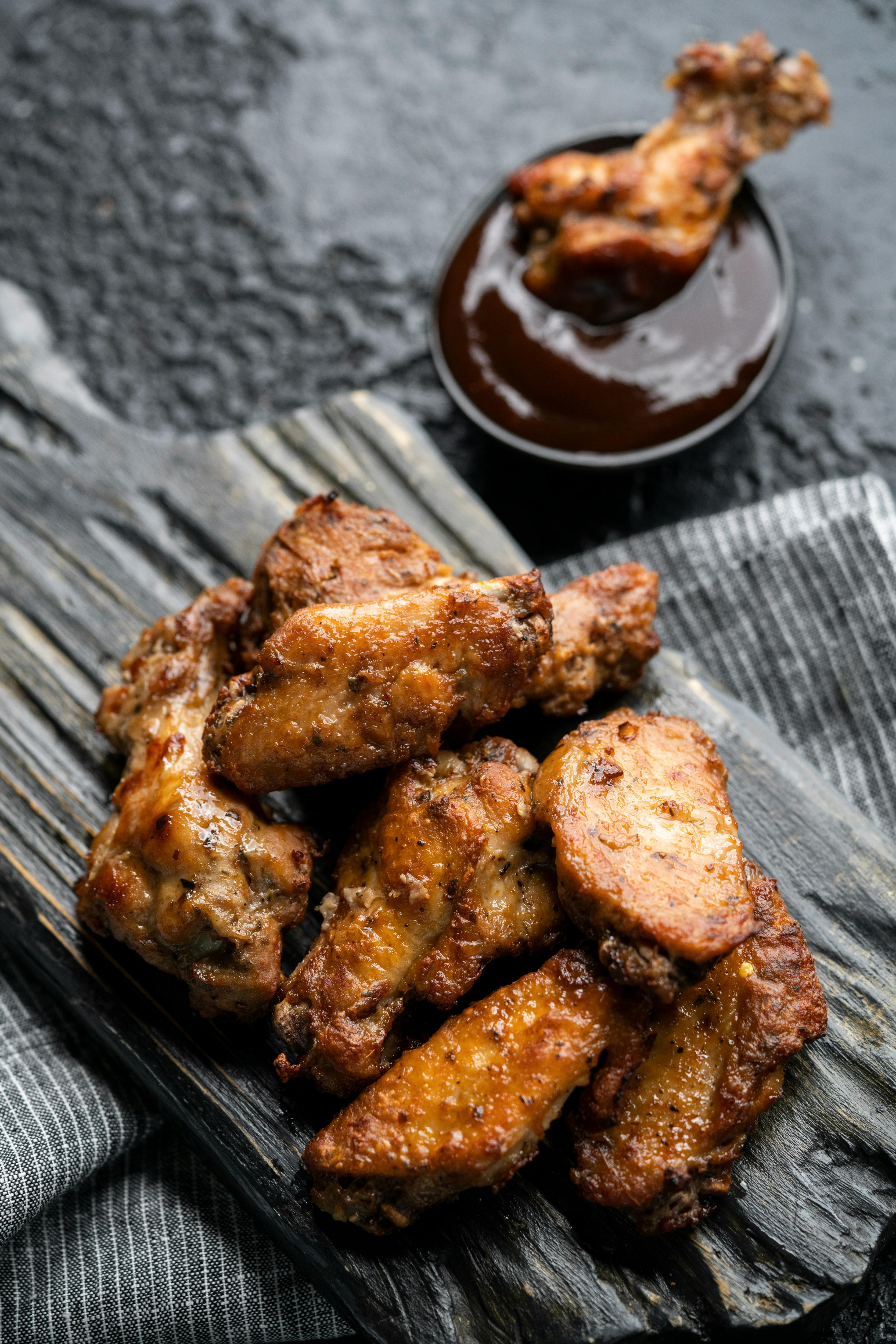
Essential Guide to Protein Diet Plans for 2025
As we move into 2025, the importance of a protein-rich diet is becoming increasingly recognized for enhancing overall health. Whether you are aiming for muscle gain, weight loss, or simply to maintain a balanced diet, integrating more protein into your meals is essential. This article explores five comprehensive protein diet plans designed to maximize your health benefits, supported by recent trends in nutrition, and offering practical meal prep ideas, recipes, and insights into the best protein supplements available today.
Understanding the benefits of protein is pivotal. Not only does it play a critical role in muscle repair and recovery, but it is also vital for metabolic processes and overall bodily function. In this guide, we will delve into various high-protein foods, supplements, and easy-to-follow recipe ideas.
By the end of this article, you will have a clearer understanding of how to optimize your protein intake through diverse dietary strategies that fit your lifestyle and nutritional needs.
Key takeaways include practical meal prep strategies, insight into protein for athletes, and alternative sources for those adhering to vegan diets.
1. Complete Protein Diet Plan for Muscle Gain
Building muscle requires a dedicated approach to protein intake, focusing on the right types of proteins and meal timing. The objective is to create a balanced protein diet that supports muscle repair and growth while providing sufficient energy for workouts.
Top Protein Sources
When planning your meals, it's crucial to include high-quality protein sources. Examples include:
- Lean meats such as chicken and turkey for their high protein content.
- Fish, especially fatty fish like salmon, which provides both protein and omega-3 fatty acids.
- Dairy products like Greek yogurt and cottage cheese, rich in protein and calcium.
- Legumes and beans offer plant-based options with substantial protein levels.
High-Frequency Meal Timing
For optimal muscle gain, distributing protein intake throughout the day is important. Research suggests that consuming protein-rich meals every 3-4 hours enhances protein synthesis and improves recovery. Start your day with a high-protein breakfast, such as a veggie omelet or Greek yogurt parfait.
Utilizing Protein Supplements
When natural food sources are insufficient, protein supplements such as whey protein can bridge the gap. A protein shake post-workout can aid in muscle recovery and support growth. When choosing a supplement, consider factors like absorption rate and amino acid profile to find one that best suits your needs.
2. Protein Diet Benefits for Weight Loss
Incorporating a high protein diet can greatly aid in weight loss strategies. The satiety provided by protein helps curb hunger and reduce caloric intake, making it a valuable ally in any weight loss plan.
Protein as a Satiety Tool
Foods rich in protein are known to enhance feelings of fullness more than carbohydrates or fats. This is crucial for maintaining a calorie deficit without feeling deprived. Include high-protein snacks in your meal prep, such as hard-boiled eggs, protein bars, or yogurt.
Daily Protein Requirements
To effectively leverage protein's weight loss benefits, aligning your intake with recommended guidelines is essential. Most adults should aim for around 0.8 grams of protein per kilogram of body weight, but competitive athletes or those involved in intense training may require higher amounts. Monitoring your protein intake can help create a balanced approach to weight management.
Meal Prep Strategies for Weight Loss
Creating meal plans focused on high-protein options can streamline your diet and keep you satisfied. Consider batch cooking chicken breasts, legumes, or tofu, and portioning them into convenient containers for easy access throughout the week. This eliminates the temptation of reaching for less healthy options.

3. Vegan Protein Options for Health-Conscious Individuals
With many people shifting towards plant-based diets, finding sustainable and nutritious vegan protein sources is essential. A well-planned vegan protein diet can provide all the necessary amino acids for optimal health.
Plant-Based Protein Sources
Options like lentils, chickpeas, and quinoa are excellent sources of protein and can be incorporated into a variety of dishes. However, it's crucial to combine different sources to ensure you're getting a complete amino acid profile.
Protein Powder Review for Vegans
Several vegan protein powders are available, such as pea protein, brown rice protein, and hemp protein. Reviewing the protein content and quality of different brands can aid in finding the best fit for your dietary needs. Look for organic options with minimal additives to ensure a clean and effective protein boost.
Protein-rich Vegan Recipes
Incorporating higher protein meals into your diet doesn’t have to be difficult. Recipes such as chickpea salads, quinoa bowls, and lentil soups can provide enjoyable, flavorful meals packed with protein. Setting aside time each week for meal prep will make maintaining a balanced diet easier.
4. Protein Diet for Athletes: Enhancing Performance
For athletes, the role of protein can’t be overstated. Adequate protein intake is crucial for optimizing performance, recovery, and overall fitness results.
Protein Timing and Meal Structure
Timing your protein consumption effectively can enhance workout recovery and muscle growth. Consuming protein-rich foods or shakes before and after workouts can help maximize protein digestion and absorption, ensuring athletes have the necessary nutrients to fuel their training.
Protein Supplements Safety and Efficacy
Many athletes rely on protein supplements to meet their daily requirements. While most are safe, it’s important to research and select products that have been third-party tested for quality. Knowing the risks and benefits associated with protein supplements can help in making informed choices.
Common Protein Diet Myths
Debunking myths about protein diets is crucial for athletes. Many believe excessive protein is required for performance; however, exceeding daily needs does not equate to increased muscle mass and can lead to unnecessary stress on the kidneys. Prioritizing balanced, nutrient-rich meals is essential for optimal health.

5. Practical Protein Diet for Beginners
Starting a protein diet can be intimidating for beginners. However, understanding the basics can create a smooth transition into integrating more protein into daily meals.
Beginner-Friendly Protein Sources
Beginners should focus on incorporating easily accessible sources of protein into their meals. Eggs, cottage cheese, and legumes are all versatile ingredients that can be blended into various dishes.
Creating Balanced Protein-Rich Meals
Building balanced meals featuring protein, carbohydrates, and healthy fats can assist beginners in forming sustainable dietary habits. Aim for half your plate to consist of vegetables, a quarter for a protein source, and the remaining quarter for whole grains or starches.
Exploring Protein Shake Recipes
Protein shakes can serve as a quick meal replacement or post-workout recovery option. Experimenting with recipes that include fruits, greens, and nut butters can enhance flavor and nutritional value. Consider customizing your shakes with ingredients that cater to your taste preferences.
Frequently Asked Questions about Protein Diets
As protein diets become increasingly popular, various questions arise. Below are some commonly asked questions to clarify important aspects related to protein intake.
What Are the Benefits of a High Protein Diet?
High protein diets are linked to numerous health benefits, including improved muscle strength, weight management, and enhanced recovery times after workouts.
How Much Protein Should I Consume Daily?
Daily protein requirements can vary, but general guidelines recommend about 0.8 grams per kilogram of body weight for adults. Athletes or those engaged in intense exercise may require 1.2-2.0 grams/kg.
Are Protein Supplements Safe?
While protein supplements can supplement dietary intake, their safety hinges on quality and proper use. It’s recommended to consult experts before starting any supplement routine.
How Can I Incorporate More Protein into My Diet?
Opt for protein-rich foods during meals and snacks, and consider meal prepping high-protein options to simplify sustaining a balanced diet.
Do Plant-Based Proteins Compare to Animal Proteins?
Plant-based proteins can be equally effective, although it's essential to combine different sources to ensure comprehensive amino acid profiles. Research suggests that they can be part of a successful protein diet.